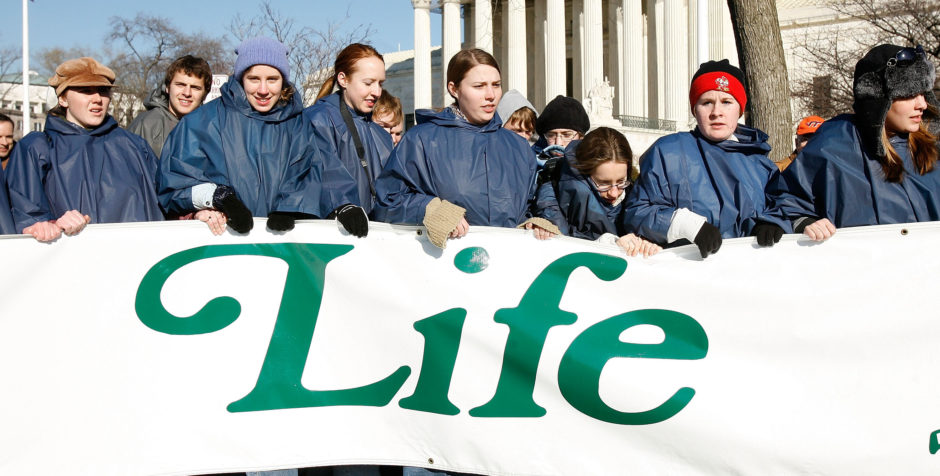Major Pro-Life Appellate Court Victory: 4th Circuit Says City Can't Force Pro-Abortion Speech
For years, the free speech rights of pro-life pregnancy centers have been under vigorous attack. With the aid and support of NARAL Pro-Choice America, state and local governments have been imposing on pro-life centers a requirement that they post a notice saying either that they do not offer abortions, or that the government will pay for eligible women to have an abortion.
When New York City tried to compel pro-life centers to post a notice, and make other written and verbal statements, indicating that they do not provide, or provide referrals for, abortion, the ACLJ succeeded in having it, and other mandatory disclosures, struck down on First Amendment grounds.
When California and Hawaii passed laws requiring pro-life centers to inform their clients that they might be eligible for a free abortion, the ACLJ filed lawsuits against those states. We filed a certiorari petition with the Supreme Court in the California case, and last November, the Court agreed to hear the companion case of NIFLA v. Becerra.
Today, in an important victory for free speech and pro-life pregnancy centers, the Fourth Circuit Court of Appeals held that Baltimore’s efforts to coerce the speech of pro-life organizations are unconstitutional.
In 2009, Baltimore passed an ordinance requiring a “limited-service pregnancy center (LSPC)” to post a disclaimer in its waiting room notifying clients that it “does not provide or make referral for abortion or birth-control services.” The city carefully crafted the definition of an LSPC—a pregnancy center that “does not provide or refer for” abortions or “nondirective and comprehensive” birth control—in order to target pro-life centers alone and thus impede their mission.
Greater Baltimore Center for Pregnancy Concerns, a non-profit Christian organization that provides “alternatives to abortion to women who find themselves in the midst of an unplanned pregnancy,” challenged the ordinance on free speech grounds. After years of litigation, including a prior appeal to the Fourth Circuit, it has, at long last, prevailed.
The Fourth Circuit’s decision comes just days prior to the first round of briefing in the NIFLA case before the Supreme Court. And it is a most welcome one for several reasons.
First, the court agreed with the argument made in our amicus brief that the ordinance impermissibly targeted the viewpoint of pro-life centers:
A speech edict aimed directly at those pregnancy clinics that do not provide or refer for abortions is neither viewpoint nor content neutral. Especially in this context, content-based regulation “raises the specter that the government may effectively drive certain ideas or viewpoints from the marketplace.” . . . We do not begrudge the City its viewpoint. But neither may the City disfavor only those who disagree.
That is exactly what is at issue in the NIFLA case. While the State of California has the legal authority to subsidize abortion if it so chooses, it may not, according to the command of the First Amendment, compel pro-life centers to advertise that subsidy against their religious beliefs and conscience.
Second, the Fourth Circuit made a very important point that we have been arguing in our California case since day one, and will argue again in our amicus brief to the Supreme Court in NIFLA:
The compelled speech at issue here raises particularly troubling First Amendment concerns. At bottom, the disclaimer portrays abortion as one among a menu of morally equivalent choices. While that may be the City’s view, it is not the Center’s. The message conveyed is antithetical to the very moral, religious, and ideological reasons the Center exists.
Laws that impose compelled-speech provisions relating to abortion on pro-life centers do much more than require a disclosure of mere fact. They require such centers to undermine the very nature of who they are and what they do, mandating that they speak words that contradict the overall pro-life message they wish to convey. The First Amendment does not tolerate such coercion.
Finally, and also directly relevant to the NIFLA case, the Fourth Circuit held that Baltimore’s (alleged) interests in ensuring that women are fully informed of their options could be advanced without burdening the speech of pro-life centers. The court said the city could inform “citizens about the scope of services offered at various facilities through a public advertising campaign.” The city could also enforce any laws prohibiting misleading advertisements, if necessary. In short, Baltimore (like California) has the ability to achieve its legislative goals without having to compel the speech of pro-life centers in a way that violates the centers’ convictions.
The Fourth Circuit’s decision is a critical one for the right of pro-life pregnancy centers to counsel women free from governmental interference. Whether Baltimore will ask the entire Fourth Circuit, or even the Supreme Court, to review the decision remains to be seen. It is our hope, however, that a positive decision by the Supreme Court in NIFLA, to be issued by the end of June, will make any such appeal futile.
